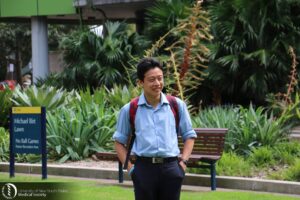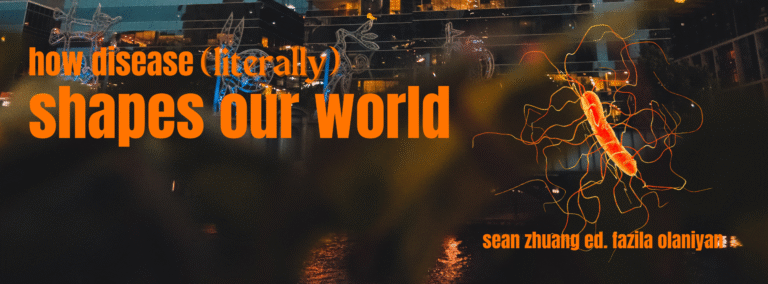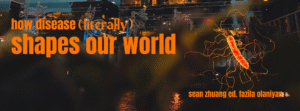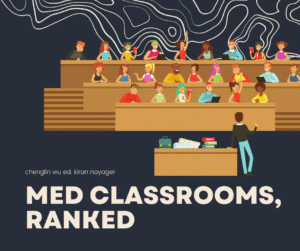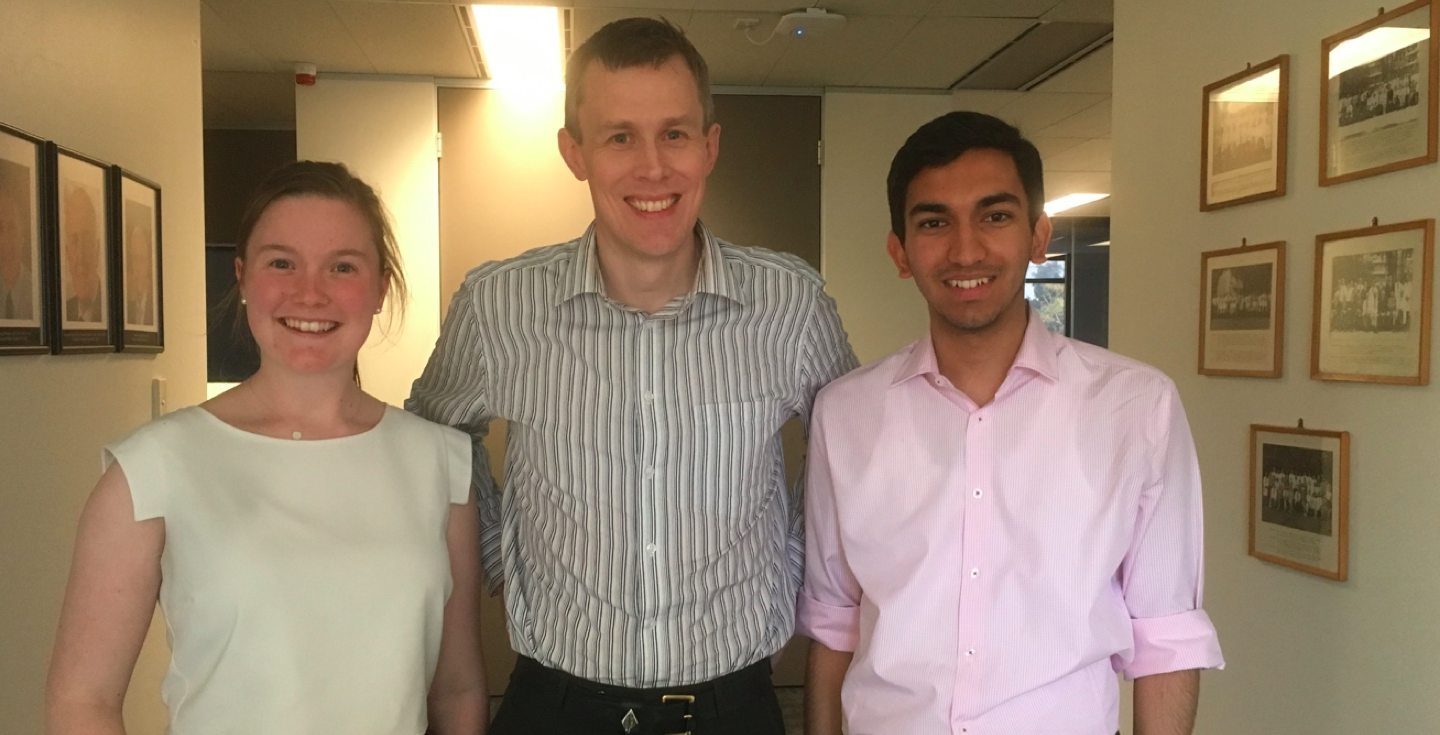
by LOKESH SHARMA & ISABELLE MCKAY
Associate Professor Greg Fox is a respiratory physician, epidemiologist and clinical trialist committed to using research to improve health care among disadvantaged populations, particularly the detection and prevention of tuberculosis. In 2001, upon return from an elective in Malawi he co-founded the Medical Students’ Aid Project (MSAP). Current MSAP Co-Chairs, Lokesh Sharma and Isabelle McKay, had the opportunity to sit down with A/Prof Fox and ask about his inspirations for starting MSAP and his work in global health.
What inspired you to start MSAP?
The idea for MSAP arose during the elective that Greg Moloney and I undertook in Malawi. We were working in a paediatric ward in Blantyre, where we saw the enormous needs of many children and their families. This was in 2000, at the height of the HIV epidemic in Malawi. Many children were severely malnourished, and suffering the effects of infectious diseases including HIV, tuberculosis and diarrhoeal disease. We wanted to respond to this confronting situation, but felt that we were not equipped to be able to help.
When we returned to Sydney, we talked about our experience with other students and agreed we needed to respond. We could not ignore what we had seen, but had an ethical responsibility to do something. We wanted to provide some sort of solution. Even though we recognised that we had limited capacity to do so, we thought the Elective Program would provide a mechanism for medical students to give something back to the patients, and the setting which had been so instructive for us. On our return, we decided we would set up an organisation led by and for medical students. Students who were about to go on their elective were particularly motivated to contribute. The program would help to prepare students for their elective. It aimed to raise funds and collect equipment that students could take with them. This would allow them to reciprocate, and make a meaningful contribution to the place in which they did their elective.
Our initial conversation really started a much broader discussion about how medical students could be engaged in the issues of global health. Being an elective student is just the start of a journey that each of us can make in contributing to the health challenges facing low and middle-income countries. MSAP helped to start students on a journey of exploring how they can contribute to resource-limited settings throughout their career. It allowed students to raise awareness about issues of global health, and develop a vision for how they can respond themselves.
Where did you think MSAP would go from there?
At the first MSAP Launch in 2001, we saw the enormous energy and enthusiasm for global health within the student community. However, we could not have predicted that MSAP would continue its work seventeen years later. It’s been inspiring to see how each generation of students have not only taken on ideas that were established at the start, but continued to improve them.
At that time, we envisaged that we wanted to set up something which the next cohort could continue to lead. What we learned quite quickly was that there was actually this huge pool of goodwill and motivation within the university community that had not been previously tapped into. There were four sixth year students in the first cohort of MSAP – Greg Moloney, Anna Fairbairn, Lee Sar and me. We worked with the next student group that included Toby Winton-Brown, Sarah Woodgate, Bec Blake, Adrian Fung. All of their contributions to the start of MSAP need to be recognised. Once we started to promote it, there was just enormous interest from years below us as well. Pretty quickly, it became apparent that this resonated with people’s desire to partner with healthcare facilities in resource limited settings. MSAP provided an avenue for people to share their passion for helping others, and make a meaningful contribution together.
Tell us about the global health issue that you’re most passionate about.
Tuberculosis is my main area of interest at the moment. I’m working predominantly in Vietnam, where around 130,000 people a year develop tuberculosis, and somewhere between 15,000 and 20,000 people die of tuberculosis, and this is a curable disease where it’s been possible in many countries dramatically reduce the prevalence. And yet, worldwide there’s still about ten and a half million cases of tuberculosis. To me, tuberculosis is a major global health priority, partly because it’s the leading infectious cause of death worldwide, but also because it’s been neglected for so long. TB really coincides with poverty and disadvantage, and so if you go to countries in world where tuberculosis exists, you also find concentrated pockets of inequality. Addressing tuberculosis is also about recognising and trying to address the underlying determinants of poor health as well.
My own research interest is around trying to go and improve the way that we use what we know to try and improve practice. I’m doing clinical trials to evaluate drugs to try and improve treatment outcomes, or try and improve screening for tuberculosis, or to try and reduce the gaps between policy and practice. I’m passionate about tuberculosis because I think it is a disease which is frequently neglected and under-appreciated. As people who come from such a privileged country, where we have skills and resources, we can make a big contribution. Australia is a major developed country in the Asia-Pacific region – where most of the world’s tuberculosis is located. So, I think we have a major responsibility to join with partners in those countries to build their the local capacity to deal with this problem. Research is an efficient approach to doing that, because it helps to develop solutions which can then be taken on by programs and scaled up.
In your opinion, what’s the best way for medical students to get involved in global health?
There are many ways! At the basic level, people can become aware of what the issues are, through reading, listening to people talk and engaging in discussions about global health. This will enable people to developing an understanding of the key determinants of global health, and how they might be addressed.
Secondly, I would encourage anybody interested in global health to take active steps that help them to directly engage with the issues. If they’re fortunate to travel and to experience places where people are suffering from different health problems, they can try and understand the underlying determinants of health problems in that context. My own experience in Malawi was very much like that. We arrived without a clear understanding about what drove the problem. But this experience allowed us to recognise the scale of the problem and have a strong sense of our need to respond.
Thirdly, I would encourage people to think about what skills they can develop in the long-term. As a medical student, there is a certain amount you can do in terms of fundraising and raising awareness and understanding issues. But really, you’re at the start of a career-long journey that can increasingly equip you with skills to take back to resource-limited communities. This may be in Australia or abroad. At each point in your career, you can think about what choices you can make that could make you more useful in those settings. It may be that you develop clinical skills, and work in an area where there is a humanitarian crisis or where there’s a clinical need. Or it may be that you develop skills in health policy and systems. Or you may be suited to developing the skills required to address the determinants of disease at a societal level as well. It depends on your own capacity, your own interest and your own skills. Global health spans everything from vaccine development and drug development to health sector reform and global health financing – there are so many ways in which you could contribute.
How have your experiences in university and MSAP inspired you to stay involved in your global health work?
At each stage in my own career up to now, I’ve sought to try and find out more and engage more with the challenges of global health. I was fortunate in my postgraduate medical training years to go to East Timor, for a short period, to work on a community-based research project. That experience sustained my interest in global health. I then undertook a Masters of International Public Health, part-time whilst I was working as a Medical Registrar. Finally, when an opportunity arose to go and start a project in Vietnam, I decided to take that opportunity. Having finished my specialty training, I moved to Vietnam and lived there for four years, as a part of a PhD project. I started a number of projects around tuberculosis. This allowed me to develop a better understanding of Vietnam and how some of those determinants of health affect patients. My experience was challenging, but also confirmed my interest in this area. Since then, I have continued to take further steps to pursue a career in research, while also maintaining my clinical skills. I think we’re very fortunate in Australia that we have the opportunity to be able to take our skills and resources, and contribute to other countries. I have found it extremely rewarding to see the receptiveness of our Vietnamese partners to working with us. It is also great to see the impact of the work that we’ve been able to do with them.
In my own journey, I have taken opportunities where they arose. I’d encourage other students or future doctors to just look at where their passions lie and follow those. I don’t think there’s ‘one size fits all’. I don’t think it’s possible to map these things out in advance. But I do know that if you’re not thinking about global health, you’re unlikely to end up doing those things. If you do keep yourself open to the possibility of working overseas, you will be prepared when an opportunity presents itself. Certainly, I have found the opportunity to work and live internationally incredibly rich and rewarding.
From a personal perspective, working internationally been very rewarding. I hope that the work that we’ve done in Vietnam will have a positive impact upon patients and their communities. At the end of the day, it is their needs that must remain at the centre of what we do.
To get involved with MSAP in the upcoming year, visit https://www.msap.org.au/2019-elections/ to apply.



